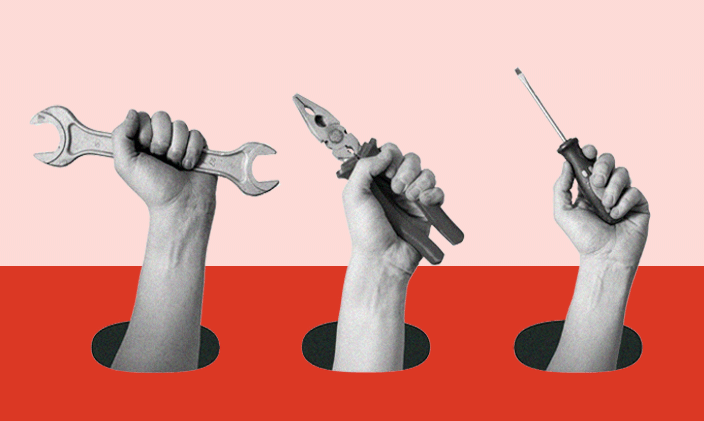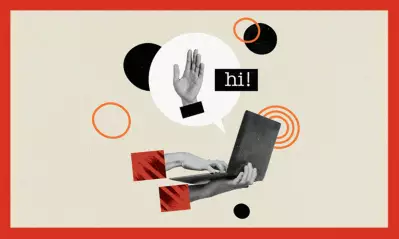How to use AI ethically and effectively in the workplace

Written by William Ordeman

Reviewed by Jessica Roper, MBA, director of Career Services at University of Phoenix

Few topics inspire apocalyptic ruminations like artificial intelligence (AI). From doomsday articles to big-budget movies, AI seems to inspire both awe and fear in equal measure.
But what is AI exactly? And are there ways to use it ethically and effectively? Here, we explore this trend within the workplace context.
What is artificial intelligence?
AI is the ability of computer-based technology to process and evaluate data to make decisions and perform tasks historically done by humans. Most of these technologies use big data to generate insights, optimize processes, lower costs and improve collaboration.
AI in the workplace
A survey conducted by Accenture found that over 80% of participating C-suite executives believed leveraging AI is crucial for the growth of their organizations. In fact, three of four claimed going out of business would be a real risk if their organization did not incorporate and scale AI into their processes.
A proliferation of AI can already be seen in grocery stores with self-checkout registers, in factories that use self-driving forklifts and machines, and in distribution centers where robots stock shelves.
Given that AI in the workplace will likely increase, executives and their employees are tasked with creating policies for using AI effectively and ethically. Many already have: A survey by Deloitte shows that 91% of interviewed business leaders have implemented an enterprisewide AI strategy.
Laci Baker, a career coach at University of Phoenix, has spent countless hours working with professionals across myriad industries to help them make informed decisions on how to use AI ethically and effectively in their careers.

“It seems everyone is talking about it these days,” Baker says. “From recruiters to thought leaders on LinkedIn , a lot of people are talking about the implications of AI technologies like ChatGPT and similar tools.”
Embracing AI
On the whole, however, AI technology like ChatGPT has been welcomed by professionals to help them in their jobs. According to Baker, many marketing professionals, content creators and even job applicants are leveraging AI chatbot technologies to enhance their work.
“So far, it seems the consensus is ChatGPT can help start or end writing projects, generate ideas, offer helpful code or software engineering tactics, or populate outlines for reports and the like,” she says. “What it should not do is become the substance of the content.”
For any content that is generated, the next step should always be to fact-check it against a trusted source, Baker says.
Not all organizations have clear guidelines and policies on using AI to improve their work. “If your organization isn’t talking about a technology that you believe will help you in your job,” Baker says, “ask about it before using it. Not everyone has decided on their policies, and you can be the employee that brings about an important conversation.”
Will AI replace people?
It seems just about anytime new technologies enter the workplace, employees are wary of the implications. After all, if AI can do the same tasks humans do but with greater accuracy and efficiency, wouldn’t that nullify human workers?
According to Baker, it doesn’t typically work out that way. “People have been worried about technology taking their jobs since the ’70s,” she says. “In truth, technology will often change the nature of our work and may even remove processes from our day-to-day. But if anything, it allows professionals to take on more robust projects.”
Baker says technology often removes the menial aspect from a person’s responsibility and replaces it with more technical work, usually in the form of managing the technology and reporting on its use.
Still, AI technology may shift job demand in certain sectors. “Copywriters, technical writers and content generators may be in less demand in the future, but organizations will be expected to produce the same if not more content,” Baker predicts.
Thus, Baker encourages those entering the workforce to learn a variety of skill sets. “The average career these days contains four to five significant shifts in role. People no longer do the same role for the same company for decades on end,” she says.
Instead, it’s become important to obtain a broad education that gives you various hard and soft skills and exposes you to different technologies. While employers may not require proficiency in using them, Baker suggests job applicants become familiar with these emerging technologies.
Take coding, for instance. According to Baker, “A few decades ago, only software developers and IT specialists were expected to know coding languages. Now, many employers expect even their new hires to be familiar with code.”
The nature of work in any industry will likely continue to evolve given the speed at which AI technologies are being implemented. The best course of action is to understand how these technologies can improve our work processes and how an organization’s policies and protocols can ensure their ethical use.

ABOUT THE AUTHOR
William Ordeman is a lecturer of business communication and a PhD candidate studying communication, borders and public health. Before entering higher education, he led marketing initiatives for several global enterprises as a marketing automation specialist. He has since published an edited book, written several articles, and continued to teach writing, public speaking and employment training to his students. When not plugging away at his dissertation, Ordeman is likely playing his drums or reading a sci-fi novel.

ABOUT THE REVIEWER
Currently Dean of the College of Business and Information Technology, Kathryn Uhles has served University of Phoenix in a variety of roles since 2006. Prior to joining University of Phoenix, Kathryn taught fifth grade to underprivileged youth in Phoenix.
This article has been vetted by University of Phoenix's editorial advisory committee.
Read more about our editorial process.
Read more articles like this:




